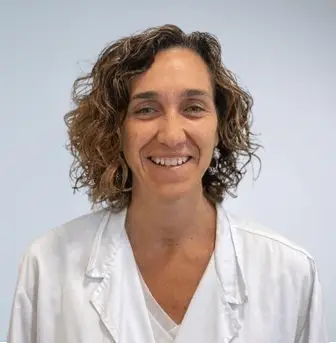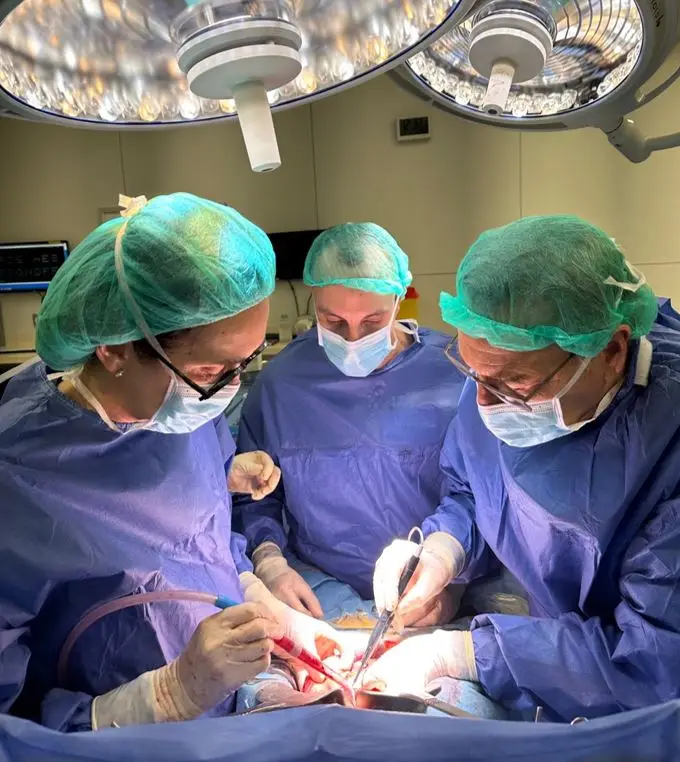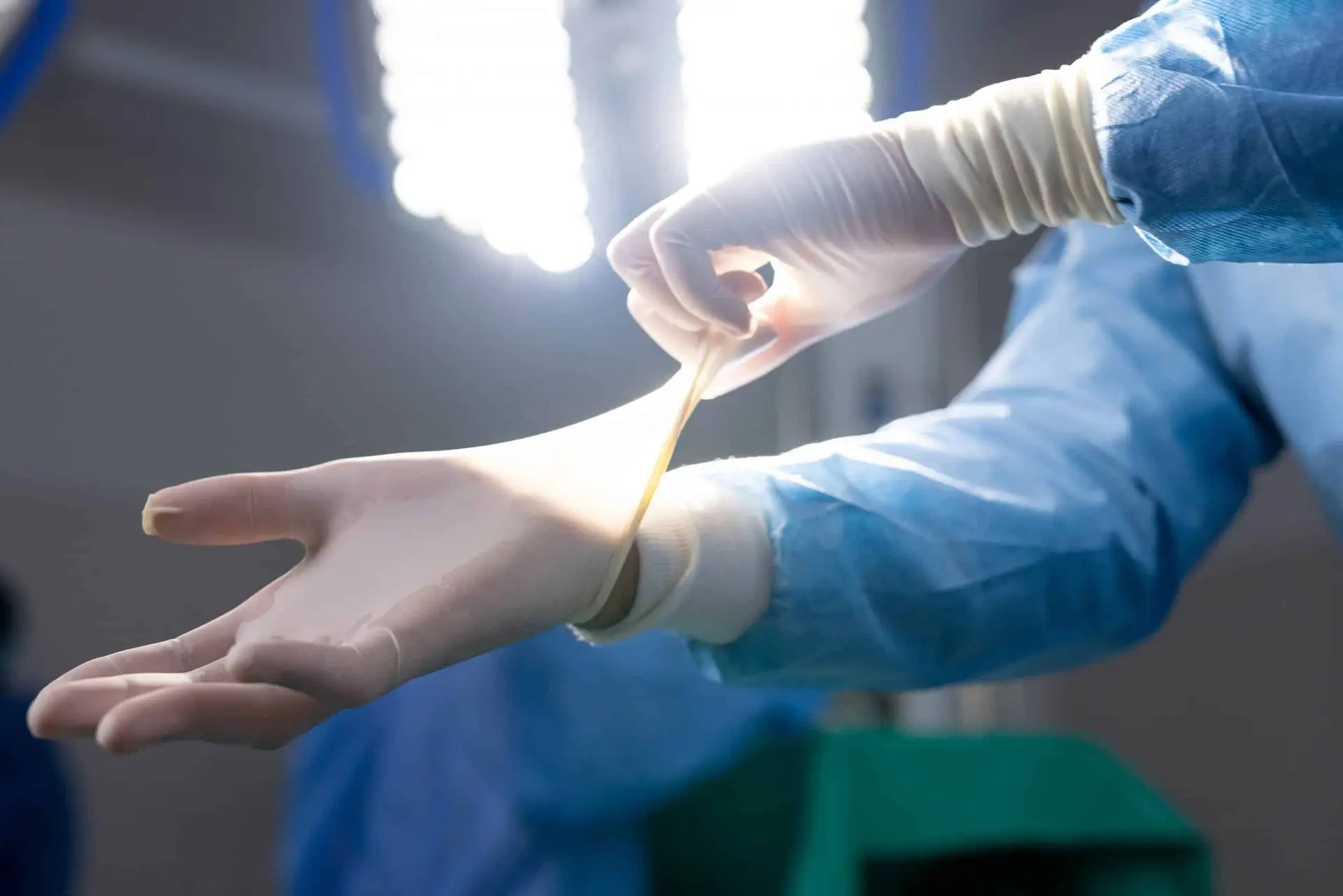Advanced audiovisual training in ”Cytoreductive Surgery and Hyperthermic Intraperitoneal Chemotherapy (CRS + HIPEC) ” in peritoneal metastases.
PEDRO BARRIOS MD, PhD
Isabel Ramos MD y Oriol Crusellas MD
About Us
It is an honour to welcome you to “Carcinopedia.org”, a multimedia platform specifically designed to accompany the training of surgeons, gynaecologists and other professionals involved in the treatment of malignant diseases of the peritoneum through the association of Cytoreductive Surgery & Hyperthermic Intraperitoneal Chemotherapy (CRS + HIPEC). This initiative integrates the theoretical knowledge and most advanced surgical techniques in this field with the expertise of Pedro Barrios MD, PhD, and his surgical team, composed of Isabel Ramos MD, and Oriol Crusellas MD.

Contenido educativo
Educational Contents
Carcinopedia.org is composed of 22 chapters that address the theoretical foundations, scientific evidence, indications and results of CRS+HIPEC treatment, supported by an extensive selection of videos that show the most recommended surgical tactics and techniques to practice CRS (and HIPEC) effectively and safely.
The current content aims to progressively incorporate new own material and also from other teams who wish to share their work in the field of peritoneal oncological surgery.
Carcinopedia.org stands out for its collection of videos, an essential resource carefully edited by the author, which maintains a uniform format and structure to facilitate the understanding of each surgical manoeuvre. The contents of the videos cover the classic procedures of peritonectomy and visceral resections, as described by Dr. P. Sugarbaker, relevant contributions from other experts in the field, and technical modifications by Dr. P. Barrios, which are also useful in other fields of surgery.
The content of the platform is based on the expertise of our team in more than 2,000 CRS treatments, of which more than 1,300 were associated to HIPEC. Clinical outcomes are included in the work.

Dr. Pedro Barrios
Dr. P. Barrios, who holds a degree and a PhD in Surgery from the University of Barcelona (Spain), began his professional career in the field of digestive and oncological surgery. He developed topics such as the reconstruction of the oesophagus by means of revascularized intestinal plasties with microsurgery techniques (the subject of his doctoral thesis), the autotransplantation of pancreatic insular tissue, head and neck surgery, intra-arterial perfusion of chemotherapy for the control of unresectable tumours, advanced pelvic surgery and treatment of retroperitoneal tumours.
In recent decades, Dr. P. Barrios has focused on following the methodology developed by Dr. Paul Sugarbaker for the radical treatment of peritoneal carcinomatosis. He has stood out for creating and leading one of the most active High Specialization Units in Peritoneal Carcinomatosis at an international level and in the training of professionals from various countries, especially Spanish-speaking ones.
Author of numerous scientific articles, he is a founding member and former president of the Spanish Group of Peritoneal Oncological Surgery (GECOP) and is a member of several scientific societies. In addition, he has collaborated with the NGO Doctors Without Borders, leading surgical projects in developing countries and holding, for a time, the presidency of the organisation.
Currently, Dr. P. Barrios continues his healthcare work as an expert in Peritoneal Oncological Surgery and Advanced Pelvic Tumours in the Oncology Service of the Hospital de Barcelona (SCIAS Group), where he maintains his commitment to the dissemination of knowledge on CRS+HIPEC treatment.

Dra. Isabel Ramos
Dr. I. Ramos studied Medicine and specialized in General Surgery and Surgery of the Digestive System in Barcelona (Spain).
Since 2006, she was part of the surgical team that led the Peritoneal Carcinomatosis Programme. She created the first Spanish Peritoneal Carcinomatosis Registry and was its coordinator at GECOP for several years. She was responsible for the care of the Peritoneal Carcinomatosis Unit of the Moisés Broggi Hospital (Sant Joan Despì. Barcelona) and mentor for the training of professionals in the treatment of CRS+ HIPEC until 2021.
She is the author of several scientific publications and a speaker at numerous scientific conferences.
She is currently part of a working group dedicated to the treatment of malignant diseases of the peritoneum led by Dr. P. Barrios.

Dr. Oriol Crusellas
Dr. O. Crusellas studied Medicine at the University of Navarra (Spain) and specialized in General Surgery and Surgery of the Digestive System at the Hospital Clínic de Barcelona.
He was part of Dr. P. Barrios’ surgical team and the Peritoneal Carcinomatosis Programme of Catalonia from 2010 to 2021.
He is also a specialist in complex abdominal wall surgery and advanced laparoscopy.
He is currently part of a working group dedicated to the treatment of malignant diseases of the peritoneum led by Dr. P. Barrios.
Recommendation
As surgeons we spend a lot of time outside of the operating theater determining who should be operated upon, when the surgery should occur, and what is the optimal surgical approach. Of course, all of these decisions are necessary in order to obtain an optimal outcome. All this being said, the major determinant of an optimal outcome depends on what happens in the operating theater. For cytoreductive surgery, a complete resection of peritoneal metastases is always the goal but not a goal that is easily achieved. All of the preoperative testing and decision-making is directed toward a totally successful result from the all-important surgical event.
The realization of the goals set preoperatively are dependent on a well-structured surgical plan of attack and sufficient surgical skill to complete that plan within an acceptable time frame and with the facilities available. How does one gain the surgical expertise to complete the optimal surgical event? It must start in the operating room working shoulder-to-shoulder with an expert cytoreductive surgeon. It continues by expanding one’s surgical expertise with every procedure. This expansion of talent in the operating theater can be realized through the study of videos narrated and performed by an expert CRS surgeon. This is where the Carcinopedia created by Pedro Barrios comes into use. Pedro has collected for us an audiovisual presentation of his immense surgical expertise. For his mastery of complex intraoperative problem-solving we can begin to comprehend the full extent of optimal CRS.
These videos show a master surgeon at work where the optimal results are realized – within the operating theater. They are, however, by no means, the end of learning surgical technology. These videos are the starting place for cytoreductive surgeons to discuss, to share ideas and to go beyond what has been done before. They are not only a stimulus for all of us to expand our technical achievements but also a stimulus for all of us to grow as a community of surgeons with a commitment to control peritoneal metastases. Together we can identify the suboptimal outcomes, understand their causation and design a new pathway around surgical treatment failure. Our results are good. They can be made better. All of us are challenged toward continued improvement by Pedro Barrios and the compendium of videos known as the Carcinopedia.
Dr. Paul H. Sugarbaker
I have known Dr. Barrios and his work for many years. For me, he is a key reference point when thinking about the treatment of malignant peritoneal diseases.
What has always impressed me is his extensive experience, interdisciplinary and interprofessional activity, holistic approach, his continuous scientific analysis of CRS+HIPEC outcomes in his patients, and his impeccable surgical technique. Within his team, every member has a precisely defined role, working in perfect coordination to reduce perioperative mortality and improve oncological prognosis.
In particular, his exceptionally low rate of anastomotic complications is remarkable and very difficult to achieve.
Experience cannot be taught—this is true—but it is crucial that surgical "craftsmen" like Dr. Barrios share their nuances and techniques to support others, especially young surgeons, helping them master and resolve intraoperative challenges.
The carcinopedia.org platform provides numerous tools essential for deepening knowledge related to CRS techniques.
The videos are of very high quality, capturing all the most relevant surgical details. For this reason, I strongly recommend consulting these educational materials.
I wish you all the enjoyment of discovering an elegant surgical technique and the fascination of surgery in a masterclass!
Dr. Pompiliu Piso
Profesor de Cirugía en la Universidad de Ratisbona, Alemania, Ex-presidente de la Sociedad Alemana de Cirugía General y Visceral, Centro de Referencia de la CRS y HIPEC en AlemaniaIn the complex and demanding field of surgical treatment for peritoneal metastases, technical excellence, accumulated experience, and a firm commitment to continuous improvement are essential pillars in offering patients the best therapeutic opportunities. Dr. Pedro Barrios exemplifies these values to the highest degree. His extensive professional career, leadership in multidisciplinary teams, and rigorous approach to cytoreductive surgery and hyperthermic intraperitoneal chemotherapy (HIPEC) have established him as an international authority in this field.
I have had the privilege of knowing Dr. Barrios for many years, and I can affirm that he fully embodies the essential attributes of a true surgeon: deep pathophysiological knowledge, surgical skill, and, above all, an unwavering humanistic approach to medicine.
However, a surgeon is not defined solely by technical mastery. The vocation to teach, the generosity to share hard-earned knowledge, and the desire to contribute to the training of future professionals are also indispensable qualities. In this regard, Carcinopedia represents a contribution of immense value. This platform not only reflects the accumulated expertise of Dr. Barrios and his team but also transforms it into an accessible, structured, and high-quality educational resource, serving all those who wish to advance in the field of peritoneal oncology surgery.
Through carefully documented audiovisual material, the project offers the opportunity to observe complex procedures in detail, understand their surgical rationale, and analyze intraoperative decisions that only experience can shape. For young surgeons, it is an exceptional learning opportunity guided by excellence. For seasoned professionals, it is a source of reflection and continued refinement.
Carcinopedia is not a final destination, but rather a point of departure. It is an invitation to engage in dialogue, to innovate, and to collectively improve our approach to peritoneal disease. As a surgical community, we now have at our disposal a unique tool that inspires us to advance toward safer, more precise, and more human-centered surgical practice.
Dr. Salvador Navarro Soto
President, Spanish Association of Surgeons
Carcinopedia.org
We would like Carcinopedia.org to be a useful educational tool for professionals in training and for more experienced professionals who are looking for additional information and renewed inspiration for this admittedly complex and challenging treatment which is, nevertheless, the only one currently available with curative potential for suitably selected patients with peritoneal carcinomatosis.
Thematic
Contenido educativo
CRS+HIPEC
In recent decades, the combination of CRS+HIPEC has established itself as an effective and safe therapeutic approach to treat some malignant diseases of the peritoneum, which historically have been considered incurable. The results of this treatment depend closely on an adequate selection of patients and, critically, on the quality of the CRS. This last aspect is essential and requires adequate training in peritoneal oncological surgery.
The safe and effective execution of CRS requires a rigorous training process, including theoretical knowledge and surgical practice (technical skills and training, clinical judgment, and teamwork). A solid training in general surgery and/or one of its specialties with oncological involvement is essential. Given the innovative nature of CRS+HIPEC treatment, additional training in institutions and/or surgical groups dedicated to malignant pathologies of the peritoneum is also needed. This specialized training can be acquired through courses promoted or supervised by scientific societies dedicated to oncological surgery.
The Carcinopedia.org aims to complement this training process. To this end, it uses audiovisual materials that go into the current state of the art together with a detailed exposition of the surgical procedures necessary to successfully treat the different types and manifestations of peritoneal metastases.

Carcinopedia.org
Experience
This work is the result of the experience accumulated by the leading surgical team in the radical treatment of peritoneal carcinomatosis. The audiovisual material was created for educational purposes, with the authorization of the patients and organized by related chapters with content, structure and graphic support that facilitate its follow-up.
Strategy, tactic and technique.
The strategy, tactics and surgical technique reflected in the videos reflect a “surgical habit” that developed over time thanks to professional rigor, organized teamwork, effort and perseverance. All surgical procedures, including genitourinary surgery, thoracic procedures, vascular and reconstructive surgery, were performed by the peritoneal surgery team.

Carcinopedia.org
We appreciate your choice of Carcinopedia.org as a complement to your professional training and we want you to feel comfortable and accompanied by this instructional effort.
Thanks to Montserrat Martin MD PhD, Sergio Mompart MD, Jordi Colomer MD PhD, Andrea Menghini and Javier Camprodon PhD for their collaboration.
Finally, to our patients: thank you for teaching us, every day, both the science of medicine and the meaning of humanity.















